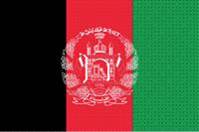
Recent developments in Afghanistan suggest that the country is approaching a turning point. The international community is modifying its state-building ambitions and is – at least temporarily – increasing its military engagement. President Karzai has announced that a peace jirga will be held in May this year to discuss ways out of the conflict. President Obama has earlier announced that American forces will start to withdraw in July next year, while The Netherlands will pull out in December this year. What does this mean for Afghanistan’s future? What are the implications for progressive reforms in Afghanistan?
The Peace Research Institute Oslo (PRIO) invites you to a seminar with Aziz Hakimi and Torunn Wimpelmann Chaudhary, both recently arrived from Kabul, who will discuss aspects of these questions. Kristian Berg Harpviken will chair the seminar.
PLEASE REGISTER WITHSEMINAR@PRIO.NOIF YOU WANT TO TAKE PART IN THE SEMINAR.
Aziz Hakimi is an Afghan political analyst based in Kabul and national director in Afghanistan for 'Future Generations', a development NGO.
*Exit the internationals? Perspectives on a post-NATO order in Afghanistan.*A NATO withdrawal strategy is increasingly being discussed. What are the main reactions in Afghanistan to this development? What are the main concerns, fears and hopes? Can the peace jirga or similar initiatives play a constructive role? How can the internationals best manage a possible exit process?
Torunn Wimpelmann Chaudhary is a researcher at the Chr. Michelsen Institute and Ph.D. candidate at SOAS (University of London). She has just returned from fieldwork in Afghanistan.
*Women, Violence and the State in Afghanistan: The case of the Law on Elimination of Violence against Women (Evaw law).*In July 2009 President Karzai signed a law which criminalised domestic violence, forced marriages and other gender based discrimination against women. What does the process surrounding the promulgation of the EVAW law tell us about the women's movement in Afghanistan and the scope for strengthening the public protection of women? How effective can such initiatives be in a situation where the Afghan state is under pressure from several directions?
Kristian Berg Harpviken is director and senior researcher at PRIO. He has a PhD in sociology, which formed the basis for his recent monograph Social Networks and Migration in Wartime Afghanistan (Palgrave Macmillan, 2009). Harpviken has considerable experience from Afghanistan and is currently involved in several research projects on Afghanistan and its surroundings.





